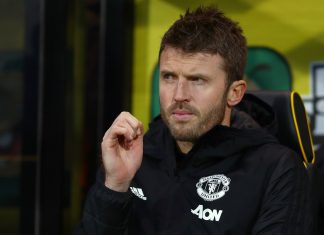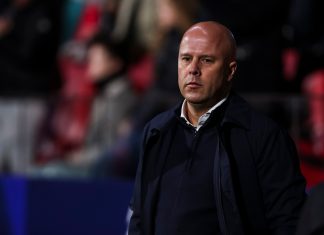Among the teams are Spanish duo Atletico Madrid and Malaga, and others including Rubin Kazan, Fenerbahce and Sporting Lisbon.
European football’s governing body made the decision after a meeting of the UEFA club financial control body (CFCB), chaired by Jean-Luc Dehaene. The Belgian has previously spoken out to warn teams not to overspend, and in particular to assess every sponsorship deal sides sign. Particularly when it comes to those such as Manchester City, who have signed deals with Etihad, a company run by the half brother of the Premier League champions’ owner. That is something Dehaene is determined to take on.
But today’s decision is something that does not affect Europe’s biggest spenders, like Man City, Chelsea or Paris St Germain. It only hits one Champions League team, Malaga, who have publicly stated that they are restructuring their finances because of UEFA financial fair play rules. Today’s move is also part of those new fair play rules, designed to force clubs to spend only what they have, not what their owners artificially inflate the team’s budget by.
So the decision must be seen as a warning from UEFA that they are serious. The noises from the organisation appear to indicate that they are determined to carry through with their threat to kick teams out of the Champions League or Europa League starting from next season if they do not comply with the new rules. That means City, Chelsea and even Paris St Germain, whose losses are gargantuan.
The big question is can UEFA legally do this? Chelsea appear in a particularly strong position – they have a partnership with Gazprom which, as well as boosting their coffers, raises a key conflict of interest question. What if a team, like Chelsea, whose owner Roman Abramovich has links to an organisation giving them money (he sold his stake in Gazprom back in 2005), but that company also has an important link to UEFA? Gazprom announced a partnership with UEFA a week before signing their deal with Chelsea. Would UEFA really kick out a team bankrolled in part by a company they depend on as a key sponsor?
Today’s ruling indicates they would like to. But whether they can carry through on their threat is another question entirely. Today’s decision is dependent on the clubs updating their accounts with UEFA by the end of September, and once they have done so UEFA may change their ruling. It could be that they quietly drop the matter and pay the prize money as promised, but then it could also be that they mean business and will not pay any club with outstanding debts as a key measure and step on the way to ensuring fair play rules are met. There are signs already that teams are changing their habits, Milan and Inter in Italy restraining their spending and Manchester City even taking a while to make a signing this summer.
The weeks ahead will be intriguing, particularly with the European Clubs Association, who represent the leading teams across the continent, having their annual meeting this week. It seems to be the first warning shot in a very intriguing battle ahead.







